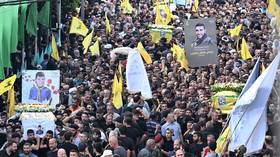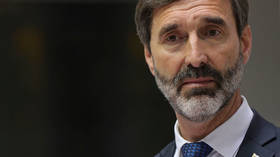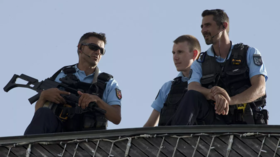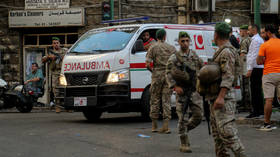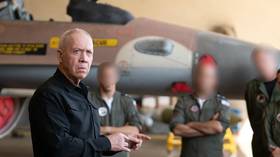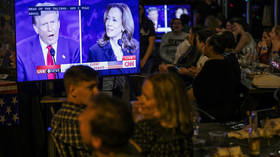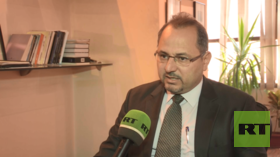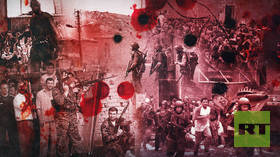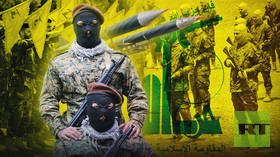UN condemns pager blasts in Lebanon and Syria
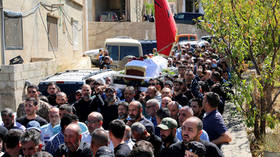
The mass detonation of electronic devices that killed at least 37 people and injured thousands of others in Lebanon and Syria was a “shocking” act that violates international human rights law, UN human rights commissioner Volker Turk said on Wednesday.
In his statement, published on the official UN website, Turk called for immediate action to find the perpetrators behind the attack.
Widespread blasts rocked Lebanon on Tuesday and Wednesday, with pagers, walkie-talkies and even laptops simultaneously exploding. The attacks appear to have targeted operatives of the Hezbollah militant group, a powerful Iranian-backed political movement and paramilitary force in Lebanon. However, many innocent bystanders were also caught up in the blasts.
Hezbollah and the government in Beirut have blamed Israel for the attacks and vowed retaliation. The Jewish state has so far neither confirmed nor denied responsibility. Media reports, however, have claimed that Mossad, the Israeli intelligence service, had rigged the devices with small explosive charges in preparation for a major war with Hezbollah, and triggered them via a remote signal.
According to Turk, the attack was “unacceptable” regardless of who was targeted.
Simultaneous targeting of thousands of individuals, whether civilians or members of armed groups, without knowledge as to who was in possession of the targeted devices, their location and their surroundings at the time of the attack, violates international human rights law.
Turk called for an “independent, thorough and transparent investigation” into the circumstances of the explosions, and said that “those who ordered and carried out such an attack must be held to account.” He also appealed to “all States with influence in the region and beyond” to help de-escalate the situation in order to avert a full out war between Lebanon and Israel, stressing that “the protection of civilians must be the paramount priority.”
The detonations took place against the backdrop of the war between Israel and Hamas militants in Gaza. Since early on in the Gaza conflict, Hezbollah, which supports Hamas, has waged a limited campaign of tit-for-tat drone and missile strikes on northern Israel, demanding that the Jewish state end its campaign in the enclave. Israeli officials have repeatedly threatened to launch a major offensive into Lebanon in response.
Less than two months ago, Israeli Foreign Minister Israel Katz announced that West Jerusalem was preparing for “all-out war” with Hezbollah. Following the second wave of blasts on Wednesday, Israeli Defense Minister Yoav Gallant announced that “a new phase” of the country’s war against militant groups was beginning, with the focus shifting from Hamas to Hezbollah. He also said that the bulk of Israel’s forces were being moved to the Lebanese border.
